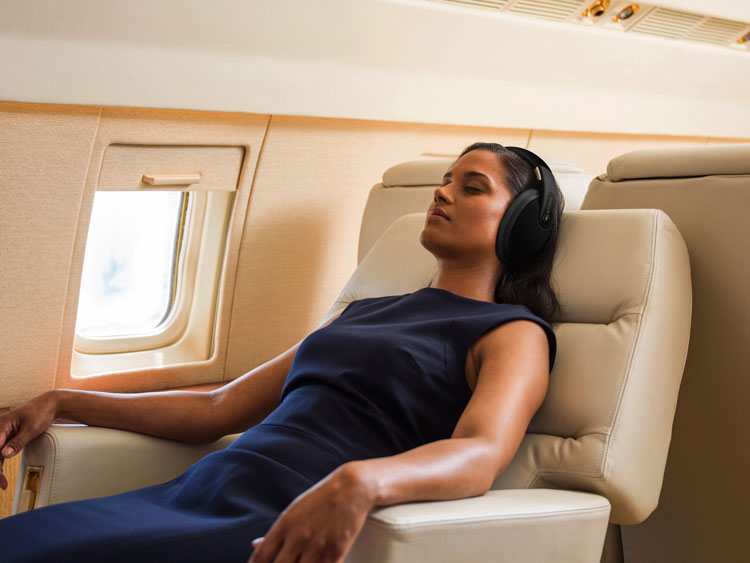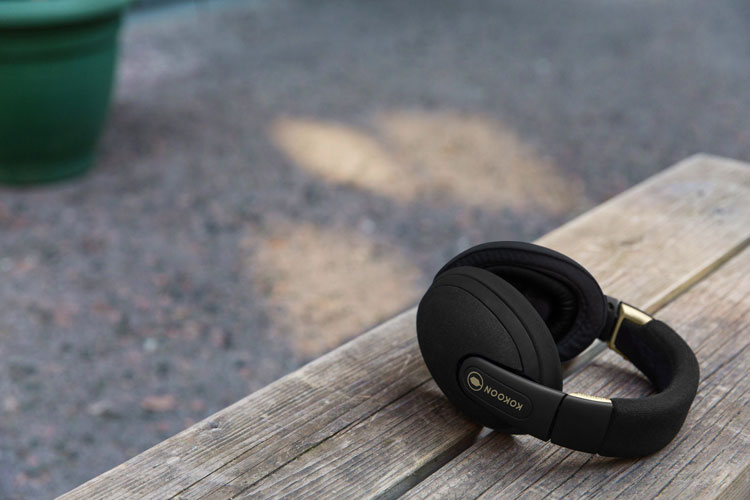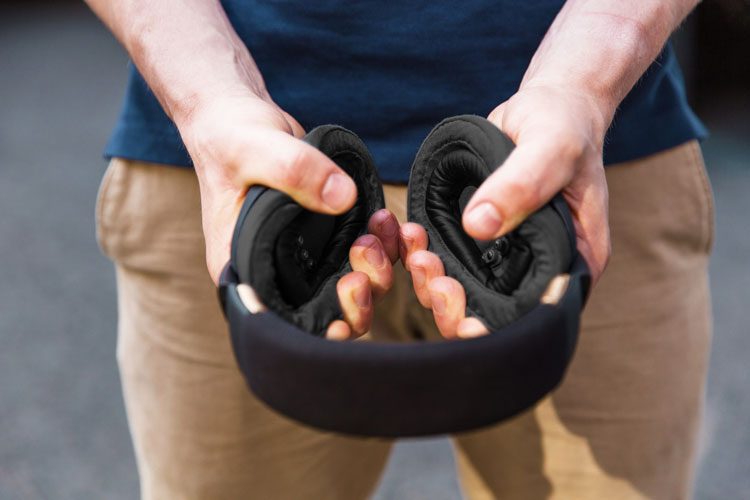Kokoon: the world’s first sleep sensing EEG (electroencephalogram) headphones, comfortable enough to sleep in, without compromising acoustic quality.
The idea for Kokoon headphones stemmed from a personal problem: founder Tim Antos had a career in banking and the consequent stress led him to constantly wake during the night, unable to return to sleep.
He searched for solutions and tried conventional medical methods such as sleeping tablets, but nothing worked, until he went to a cognitive behavior program at a sleep clinic. He found the most effective remedy at the program was using audio to help him to switch off. Whilst this provided a solution it also raised another problem; it was uncomfortable to sleep wearing large headphones.
Antos realized the clinic had a wealth of scientific knowledge and tips to help people to sleep, and he decided to combine this science with the technology of an accessible consumer device that exists already.
To be able to use Kokoon as regular headphones was of paramount importance to the company, the technology has to be there for when it is needed, not isolated in a single-use gadget, the product has to hold tangible value for the consumer.



At the beginning it was just Tim Antos creating prototypes of the product, until he was joined by his co-founder Richard Hall, who met via a mutual friend, who had graduated from University of Cambridge with a degree in electronics engineering.
Antos had worked in digital innovations at Lloyds Bank and worked on his ideas for Kokoon alongside his day-to-day job. Antos has a background in mechanical engineering, having developed medical products at Cambridge.
He used personal finances for the seed investment in 2013, then in 2014 the pair joined the Hax hardware accelerator program, which Antos said he would “definitely recommend.”
The team had to live in China for three months and then spend three weeks in San Francisco. The program in China allowed them direct access to the supply chain – what would take three months to test in the UK, took them only one week in China.
“I generally recommend accelerators, I think the term has been really misused. An accelerator needs to invest at least 50-100K to really have a buy-in enough to help you,” said Antos.
Top tips for a tech startup with an idea:
- Listen to the experience of others, or you’ll learn the hard way.
- Build a great team. The first test is finding a good co-founder that really brings something to the table, not just a friend, but someone new. If you can convince them, you can convince others.
- Just do it – but do your due diligence. Think it through, find people who have done it before and talk to them, do your research, de-risk personally as much as possible.
- Get some traction doing things alongside the day job first.
Q+A
with Tim Antos, founder of Kokoon.
Tell us about your team.
A team of scientists and product developers. Antos and Hall had primarily outsourced work to contractors to keep their costs to a minimum, but the success of their Kickstarter campaign meant they had to build a team.
The campaign launched on Kickstarter and raised just under $2m – a completely unexpected figure for Antos and Hall who had been aiming for $100K.
“One of our biggest lessons is the value of experience. It doesn’t matter how different your product is, there will be someone who has done something similar before. Use their shortcuts,” advised Antos.
Initially they started with a ‘green’ team, but soon learned to embrace experience, despite the expense.
“Gareth Jones took Fitbit in Europe from zero to $230m,” Antos said.
“What has been awesome is that the product has attracted experts towards us, so we have been able to use their decades of experience. It is all about listening to the people who have done it before. Gareth Jones, who set up Fitbit in Europe approached us to say he loved the product and wanted to work with us which was great. Also our partnership with Pioneer Onkyo was great for us on Kickstarter as well, to show a massive corporation was lending us their support.”
What has surprised you the most in your startup journey so far?
“How hard it is. It is harder than you ever imagine, and you just have to have such perseverance. So much will go wrong and you will think it is game over but somehow you will find a way through it. I have never doubted that we would succeed, but it has taken so much longer than we ever thought – we don’t succeed until we have a sustainable business.”
At what point do you call yourselves a startup and when are you no longer a startup?
“I very much still see ourselves as a startup. I think you move from being a startup once your business could run with without you if you left the next day.”
How important was your campaign design on Kickstarter?
“Very important. It is very difficult to get right, but you have to make it your focus, because people need to get your idea. It has to be a good idea in the first place and you have to tell the story of your product.”
In what way did you incorporate UX (User Experience) in your design?
“It was built on the back of a bad experience, so one of the beauties of being your own customer is that you have your own North Star, initially at least. We are always trying to get more customer feedback, via Kickstarter and testing with friends, family and the team. Often testing is the least glamorous but the most important part of developing a product.”
What were your design priorities?
- Comfort – which was no easy thing. It was extremely tough to balance acoustic quality with the shape of the ear cup – it was a constant tightrope.
- Making sure it was a good pair of headphones – not just a gadget
Tell us about the diversity of applications for your product.
“Travel is a big application opportunity for Kokoon and a lot of airlines have approached us, as there is a big focus on sleep within the airline industry. The number one reason for someone to buy a business or 1st class seat is to get more sleep, which our product can help with. This is a great potential partnership which is currently in trial stages – following this we aim to create a second generation especially for airline use.
“The British swim team even ordered 30 sets for the Olympics. It has been incredible what came out of Kickstarter.”
Are there any plans for new products or just further product development?
“Our mission is to use technology specifically ‘intelligent audio’ to help humans live healthier and happier lives. Audio is a very powerful tool; it can help you sleep, relax, focus, prepare, meditate etc. and we combine audio with sensing to provide a feedback loop to respond and adapt and learn what’s effective.
“We have more ideas on the software side and future variants of the product, and also other tech products.”
Are you heading toward any landmarks for your business?
“We are shipping 18,000 units early next year. We will ramp up slowly, as we don’t want to risk any logistic mishaps or customer support breaking down.”
Has Brexit impacted you in any way and if not do you think that it will?
“Despite it being a huge personal trauma,” he laughed, “But no – not yet. We had an investor from a french fund who got a little spooked by Brexit but that was all. I think it will have an impact downstream, especially with EU grant funding and hiring.”
Sum up your experience as a startup in one sentence.
“I feel like a hill runner sometimes; lots of endurance required, many false summits but you get stronger and better every time.”
Have you found during your startup journey there have been times when you have needed to use your own product?
“Oh yes, last night.”
